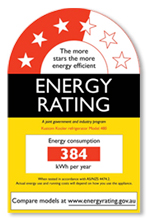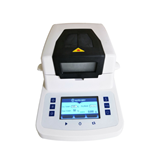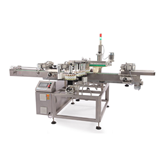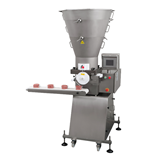They want manufacturers to adopt a "health star rating" to give consumers at-a-glance information about the food they are buying — similar to energy ratings used on washing machines and dryers.
The ratings, up to five stars, would reflect the nutritional value of the food — with more stars the better.
However peak industry body The Australian Food and Grocery Council (AFGC) warned the federal government serious flaws remain and need to be resolved if an effective front-of-pack nutrition labelling system (FoPL) is to be implemented.
AFGC CEO Gary Dawson said it was unfortunate the announcement had been rushed out by the Federal Government without any cost benefit analysis or evidence that it will achieve the outcomes it is seeking.
"The AFGC and the food processing sector is willing to remain engaged in the development of the FoPL scheme, but a number of outstanding issues will need to be resolved in order to effectively implement an easily understood labelling system to promote healthy, balanced diets," Dawson said.
"Industry believes that there are still significant problems with the proposal but we are committed to working through them to see if a workable solution can be found.
"The food industry is expected to carry the $200m cost of implementing this scheme while also dealing with an additional regulatory burden. If industry is going to make this investment in a new FoPL system, it must be based on sound and credible science, effective in communicating with consumers and practical and attractive for industry to implement.
"An effective FoPL system will need to resolve issues such as how the star system is calculated to avoid anomalous ratings that will undermine the credibility of the scheme and potentially mislead consumers.
It will also need to address whether there will be substantial funds to educate consumers on how to use the labelling for healthy diet selection and if the government is prepared to undertake a robust and credible cost-benefit analysis.
“Extensive international scientific literature has demonstrated that informative elements such as Daily Intake Guide (DIG) are an essential part of any effective front-of-pack labelling scheme to enable consumers to identify healthier choices.
"DIG now has more than 7,200 products, representing a $72 million industry investment that provides consumers accurate and easy to understand information on labels. The wide acceptance of the DIG means that it should remain as a foundation informative element on labels, providing valuable consumer information.
"Any move to mandate these changes would be a major setback and is certainly inconsistent with the National Food Plan and the Asian Century White Paper that aims to reduce the regulatory burden and enhance export competitiveness of Australia's food processing industry."
The proposed star rating system will also include nutrient information icons for energy, saturated fat, sodium, sugars and can include one "positive" nutrient such as calcium or fibre.
"The preferred implementation option in Australia is a voluntary system," the ministers said in a joint communique after their meeting in Sydney.
"If, following evaluation after two years, a voluntary implementation is found to be unsuccessful, a mandatory approach will be required."
The Public Health Association of Australia said the star rating system would encourage healthy eating and help address long-term issues around obesity and chronic disease.
"Australians are familiar with five-star rating systems. We use them to judge hotels, movies and white goods," association president Professor Heather Yeatman said in a statement.
The Australian Chronic Disease Prevention Alliance said it had enormous potential for consumers to manage fat, sugar and salt intake.
"We are extremely pleased that ministers will consider making the scheme mandatory if widespread uptake is not achieved in two years," alliance chair Professor Greg Johnson said.
















-160x160-state_article-rel-cat.png)






